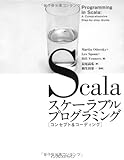//11
def pack[A](ls:List[A]): List[List[A]] = ls match {
case Nil => Nil
case head::tail => ls.takeWhile(_ == head) :: pack(tail.dropWhile(_ == head))
}
def encodeModified[A](ls: List[A]): List[Any] = pack(ls) map {
e => if (e.length == 1) e.head else (e.length, e.head)
}
println("s11: " + encodeModified(List('a, 'a, 'a, 'a, 'b, 'c, 'c, 'a, 'a, 'd, 'e, 'e, 'e, 'e)))
//12
//scala> List.make(5,3)
//warning: there were 1 deprecation warnings; re-run with -deprecation for details
//res5: List[Int] = List(3, 3, 3, 3, 3)
def decode[A](ls:List[(Int, A)]): List[A] = ls flatMap {e => List.fill(e._1)(e._2)}
println("s12: " + decode(List((4, 'a), (1, 'b), (2, 'c), (2, 'a), (1, 'd), (4, 'e))))
//13
def encodeDirect[A](ls:List[A]): List[(Int, A)] = ls match {
case Nil => Nil
case head::tail => (ls.takeWhile(_ == head).length, head) :: encodeDirect(tail.dropWhile(_ == head))
}
println("s13: " + encodeDirect(List('a, 'a, 'a, 'a, 'b, 'c, 'c, 'a, 'a, 'd, 'e, 'e, 'e, 'e)))
//14
def duplicate[A](ls:List[A]): List[A] = ls match {
case Nil => Nil
case h::t => h::h::duplicate(t)
}
println("s14: " + duplicate(List('a, 'b, 'c, 'c, 'd)))
//15
def duplicateN[A](n:Int, ls:List[A]): List[A] = ls flatMap {e => List.fill(n)(e) }
println("s15: " + duplicateN(3, List('a, 'b, 'c, 'c, 'd)))
//16
// // Functional.
// def dropFunctional[A](n: Int, ls: List[A]): List[A] =
// ls.zipWithIndex filter { v => (v._2 + 1) % n != 0 } map { _._1 }
//}
def drop[A](n:Int, ls:List[A]): List[A] = {
def drop2[A](n:Int, ls:List[A]): List[A] = ls match {
case Nil => Nil
case _ => ls.take(n-1) ::: drop2(n, ls.drop(n))
}
drop2(n,ls)
}
println("s16: " + drop(3, List('a, 'b, 'c, 'd, 'e, 'f, 'g, 'h, 'i, 'j, 'k)))
//17
// Builtin.
// def splitBuiltin[A](n: Int, ls: List[A]): (List[A], List[A]) = ls.splitAt(n)
def split[A](n:Int, ls:List[A]): (List[A],List[A]) = (ls.take(n), ls.drop(n))
println("s17: " + split(3, List('a, 'b, 'c, 'd, 'e, 'f, 'g, 'h, 'i, 'j, 'k)))
//18
def slice[A](s:Int, e:Int, ls:List[A]): List[A] = ls.take(e).drop(s)
println("s18: " + slice(3, 7, List('a, 'b, 'c, 'd, 'e, 'f, 'g, 'h, 'i, 'j, 'k)))
//19
def rotate[A](n:Int, ls:List[A]): List[A] = {
if (n >= 0) ls.drop(n) ::: ls.take(n)
else ls.drop(ls.length + n) ::: ls.take(ls.length + n)
}
println("s19: " + rotate(3, List('a, 'b, 'c, 'd, 'e, 'f, 'g, 'h, 'i, 'j, 'k)))
println("s19: " + rotate(-2, List('a, 'b, 'c, 'd, 'e, 'f, 'g, 'h, 'i, 'j, 'k)))
//20
def removeAt[A](n:Int, ls:List[A]): (List[A],A) = {
val v = ls.splitAt(n)
(v._1 ::: v._2.tail, v._2.head)
}
println("s20: " + removeAt(1, List('a, 'b, 'c, 'd)))

 Scalaスケーラブルプログラミング第2版
Scalaスケーラブルプログラミング第2版
 Scalaスケーラブルプログラミング[コンセプト&コーディング] (Programming in Scala)
Scalaスケーラブルプログラミング[コンセプト&コーディング] (Programming in Scala) 離散数学への招待〈上〉
離散数学への招待〈上〉 Scalaプログラミング入門
Scalaプログラミング入門